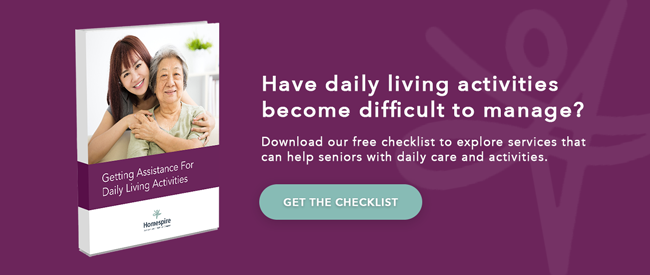There are many options to help people age in place. How do you know where to start? What to choose? What’s covered? And what exactly do you need? It starts with outlining your older loved one’s goals – what do they want and make a list of priorities.
What we know is that 76% of Americans aged 50+ prefer to remain exactly where they are and yet just 59% anticipate that’s possible. The reasons range between affordability, isolation concerns, transportation, medication management and the list goes on. Often, getting support early on with guidance can lower long-term costs and keep people aging well at home, especially after a hospitalization or surgery.
